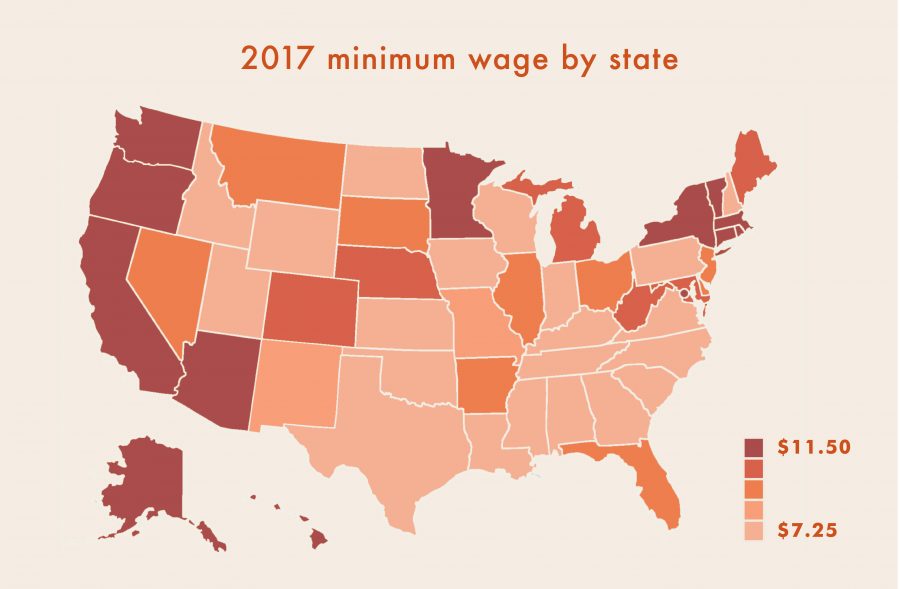The last time Texas raised its minimum wage was in 2009, when it was forced to by a change in the federal standard. In contrast, after receiving a pay raise in 2009, Texas legislators received another raise in early 2015, and members of the Texas Legislature became eligible for large pensions. House Bills 924 and 937 aim to return the favor to constituents by raising the minimum wage to $10.10. It is a necessary step that has become mired in a quagmire of Texas state politics.
The largest raise in the minimum wage was enacted by President George W. Bush in 2007, a 70 cent hike to $5.85 from the 1997 rate of $5.15. However, when accounted for inflation, the strength of the new wage rate was still lower than the minimum wage in 1997 ($7.30 vs $7.08). The federal government plays a game of catch-up with the minimum wage and leaves the question of substantial wage raises to the discretion of state governments.
In that regard, Texas has severely disappointed. The Lone Star State boasts the sixth-highest number of minimum wage workers and the second-lowest wage rate for hourly workers. Data demonstrates that a living hourly wage in Texas constitutes $10.67, whereas a poverty wage is $5.00. The 287,000 minimum wage workers in Texas live closer to the brink of poverty than a living wage.
Free market crusader and Texas Gov. Greg Abbott argues a minimum wage hike would kill Texan jobs. However, a meta-analysis of 200 individual studies found that moderate raises in the minimum wage have had no adverse impact on employment or worker hours. In fact, states that raised the minimum wage in 2014 actually saw faster job creation than states that kept their wage flat. It is not conclusive evidence that minimum wage raises increase job growth, but it casts doubt on Abbott’s claim. Moreover, a living wage of $10.10 would directly impact almost 2 million Texans and provide a $3.1 billion boost to the state’s GDP.
Detractors of a living wage argue that a rise in incomes will beget a rise in prices. This is misleading. First, inflation is a natural factor in all markets. Second, labor economists found that a 10 percent increase in wages was only found to correlate with a 0.4 percent increase in general prices. The extra padding a living wage would provide to consumers is more than enough to defray the marginally higher prices.
For the sake of the word count, here are a laundry list of things research demonstrates a minimum wage raise would do: Target the poorest families, alleviate the burdens of high rent, reduce the cost of government welfare programs, garner bipartisan support among Texans, improve education outcomes, and reduce the consumption of nutrition-poor food.
Finally, raising the minimum wage prevents premature death and improves health. I’m sure Abbott can agree this is a good thing.
It’s simple, yet at each step the state government has fought back, and the limited power of local entities means any potential raises would only impact workers directly involved with the city or county government. Cities and counties are banned from setting their own minimum wage rate, so now the responsibility lies with the Texas Legislature to ensure that Texans earning a minimum wage have a fair shake at financial security. Legislators like their pay raises — it’s past time they returned the favor.
Hasan is a business freshman from Plano. Follow him on Twitter @UzzieHasan.





















